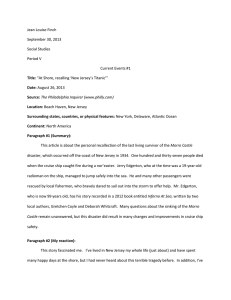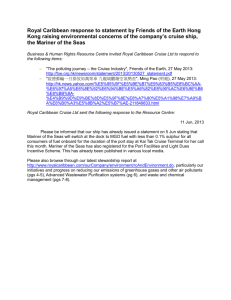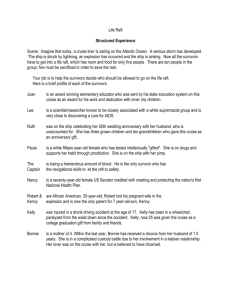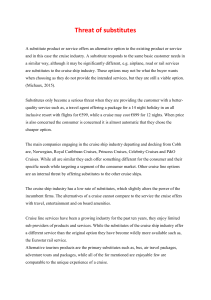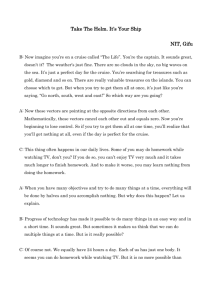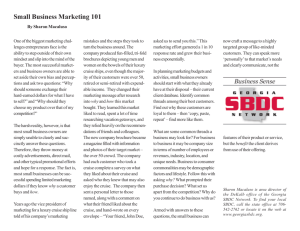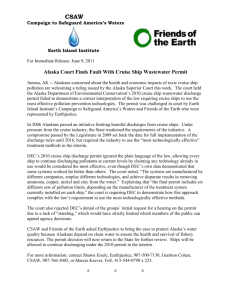Arctic Cruise Ship Island Tourism
advertisement
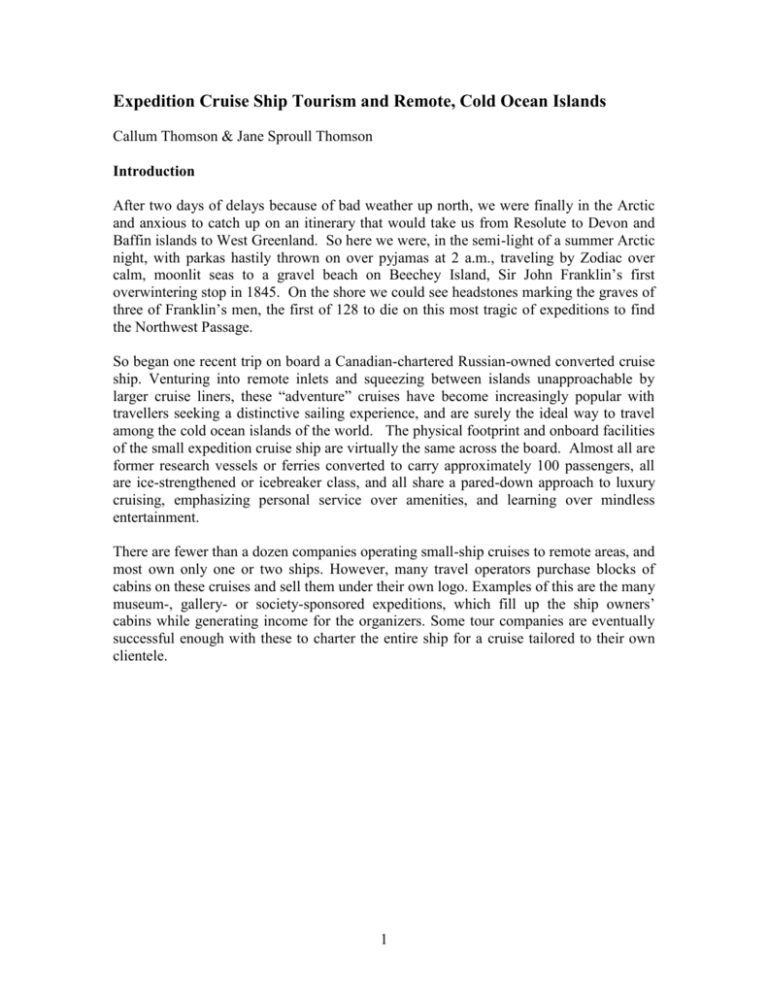
Expedition Cruise Ship Tourism and Remote, Cold Ocean Islands Callum Thomson & Jane Sproull Thomson Introduction After two days of delays because of bad weather up north, we were finally in the Arctic and anxious to catch up on an itinerary that would take us from Resolute to Devon and Baffin islands to West Greenland. So here we were, in the semi-light of a summer Arctic night, with parkas hastily thrown on over pyjamas at 2 a.m., traveling by Zodiac over calm, moonlit seas to a gravel beach on Beechey Island, Sir John Franklin’s first overwintering stop in 1845. On the shore we could see headstones marking the graves of three of Franklin’s men, the first of 128 to die on this most tragic of expeditions to find the Northwest Passage. So began one recent trip on board a Canadian-chartered Russian-owned converted cruise ship. Venturing into remote inlets and squeezing between islands unapproachable by larger cruise liners, these “adventure” cruises have become increasingly popular with travellers seeking a distinctive sailing experience, and are surely the ideal way to travel among the cold ocean islands of the world. The physical footprint and onboard facilities of the small expedition cruise ship are virtually the same across the board. Almost all are former research vessels or ferries converted to carry approximately 100 passengers, all are ice-strengthened or icebreaker class, and all share a pared-down approach to luxury cruising, emphasizing personal service over amenities, and learning over mindless entertainment. There are fewer than a dozen companies operating small-ship cruises to remote areas, and most own only one or two ships. However, many travel operators purchase blocks of cabins on these cruises and sell them under their own logo. Examples of this are the many museum-, gallery- or society-sponsored expeditions, which fill up the ship owners’ cabins while generating income for the organizers. Some tour companies are eventually successful enough with these to charter the entire ship for a cruise tailored to their own clientele. 1

